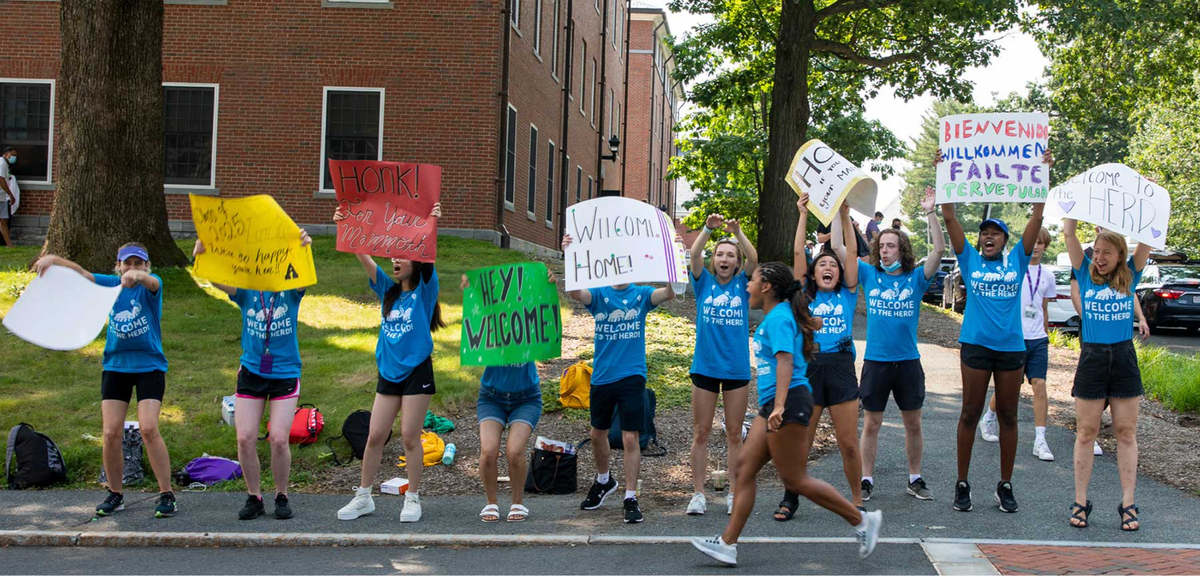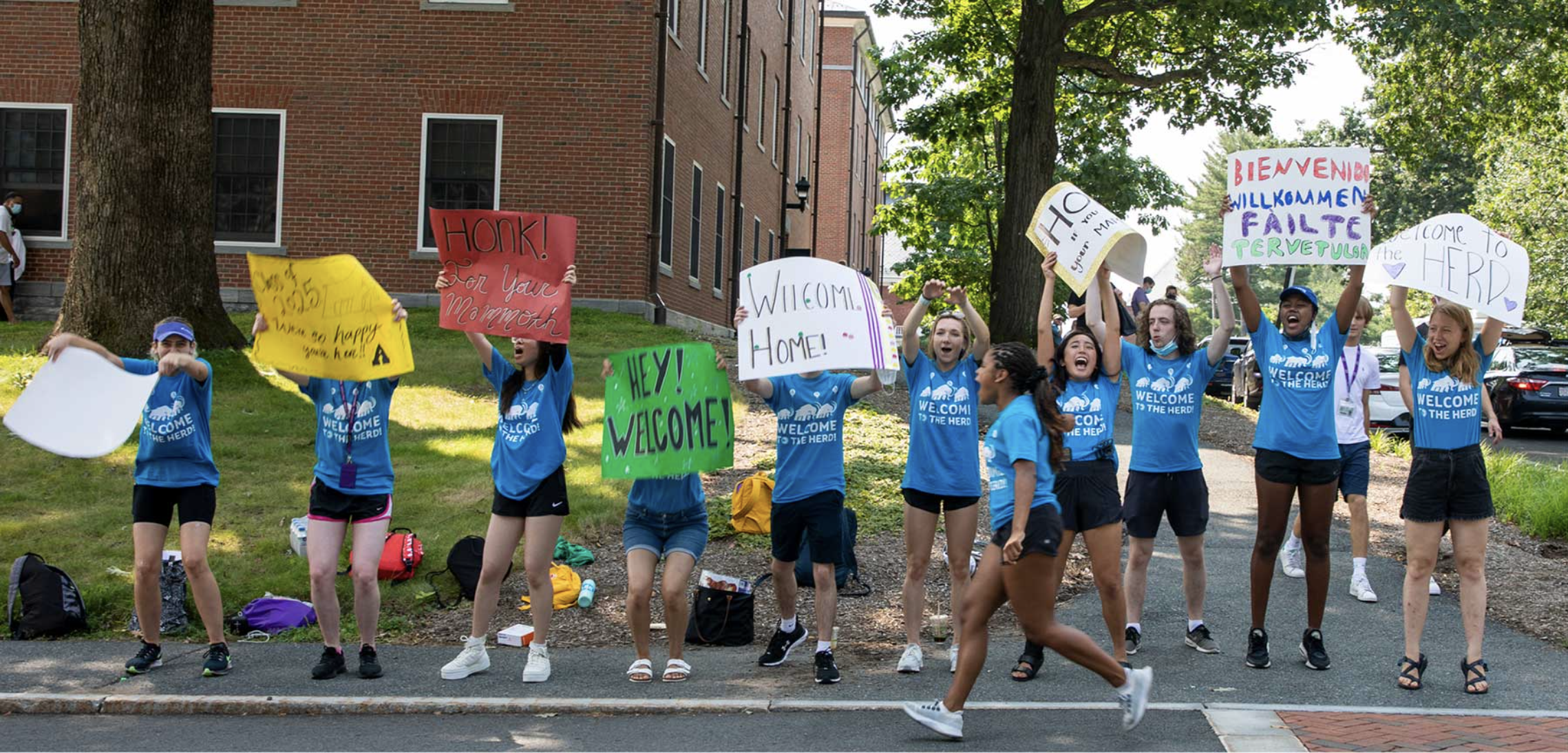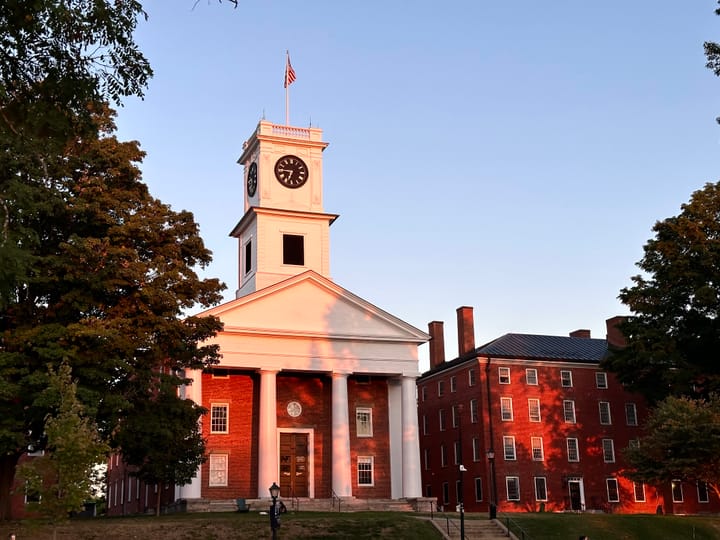OLs, CAs Frustrated by Delays in Receiving Pay
Nearly one month after orientation, Orientation Leaders (OL) have still not been paid for their work. The paychecks of several Community Advisors (CA) were also delayed. Students are frustrated by the disregard for student workers evident in the administration’s handling of the situation.


Orientation Leaders (OL) have not been paid yet for their work, even though New Student Orientation took place nearly a month ago. Several Community Advisors (CA) also experienced delays in receiving their biweekly paychecks in the first few weeks of the semester. Students expressed frustration at the administration’s lack of communication and concern around the delays, with several noting that such attitudes fall within a larger failure to value student workers at the college.
OLs who spoke to The Student said that they had been expecting their $600 stipend to come in on Sept. 3, at the end of the first pay period of the semester. They did not receive the stipend at the end of the following pay period either, which was two weeks later. As of the time of publication, OLs have not received compensation for their work from Aug. 22 to Aug. 29 preparing for and leading orientation. The initial paychecks for approximately 20 percent of CAs — who were supposed to receive their first paycheck on Aug. 20 — were also delayed by two weeks, with two students’ paychecks delayed past Sept. 3.
Delays in receiving pay can place great burdens on students relying on that money to cover hefty expenses at the beginning of the semester. Speaking from her experience as a low-income student, Jeanyna Garcia ’23, who served as an OL, said, “One of the reasons why a lot of people do this job is because it's a way to make sure you're financially okay to start a new semester, because books are expensive and living here is expensive.”
“Some of us have credit card bills due, some of us were expecting this money to pay off various debts that we have,” added Sophie Kubik ’23, also an OL. “It really sucks to [be] promise[d] $600 and then just not [be] give[n] it in a timely manner.”
The stress and uncertainty caused by the delay in payment is exacerbated by administrators’ lack of communication, students said. “If it weren't for us continuously texting in the GroupMe with the OLs and [Director of New Student Programs] Marie [Lalor], like ‘Hey, when is this payment coming?’ I don't think we would [get any information],” said Garcia. “[It’s] very frustrating because we want to be sympathetic towards Marie, we know that she's doing a lot, but at the same time, sending a message is super helpful and calms down a lot of people's anxiety in terms of like, ‘Am I getting my bills paid? When is the money coming in?’”
“It's frustrating and sad that we don't get that communication unless students are the ones stepping in to ask for some sort of transparency,” she said.
Ella Rose ’23, another OL, reported that the last update they received about their pay came from Lalor on Sept. 17. “As of right now, we don't know when we're getting paid,” she said. “There's been a frustrating lack of updates, and it feels like pulling teeth [trying] to get any information about it.”
Students stated that even those updates that did come failed to provide any explanation for the delay. “We were just given non-responses, like ‘I can't believe you haven't gotten paid yet,’” said Diana Daniels ’22, an OL.
This lack of transparency makes it difficult for students to hold the college accountable. “It's never been directly communicated to us, ‘This is who you need to be talking to,’” said Kubik. “And because we don't exactly know who we need to be talking to, I think that's also allowing them to kind of kick the can down the road a little bit more.”
“Money at this college has always been a cavernous, secretive thing, like where does it come from, where does it go?” she continued. “These sort of mysterious inner workings of the money structure at Amherst are just completely unknown to us, and because of that, we don't know how to actually force them to pay us.”
In a statement to The Student, Lalor explained that the delay in pay is caused by “the multi-step process in the new Workday system to hire and pay student staff, coupled with staffing changes among those who are most knowledgeable in these systems.” She stated that “we are actively working with both Student Employment and Payroll, as well as with the larger Student Affairs division, to process these payments as quickly as possible.”
Associate Dean of Students Scott Howard and Director of Residential Life Andrea Cadyma described the delay in CA paychecks as “the result of an unexpected employee departure in the Office of Financial Aid who processed payroll in the college's new system (Workday).”
They added that all students who reached out with concern were offered immediate interim financial support, whether through a pay advance or direct assistance with expenses. “While these errors are certainly frustrating and inconvenient, we have not been notified of any student experiencing hardship as a result of these delays,” said Howard and Cadyma.
Both OLs and CAs affected by pay delays reported, however, that administrators did not inform them of resources available for financial aid immediately in response to initial delays, if at all. “We weren't given any direction or guidance, like ‘If you need something specifically because you don't have this money, reach out here,’” said Daniels. “I think that’s something that they assumed students would just figure out on their own, which is kind of unfair.”
Obed Labra-Pelaez ’23, a CA who did not start getting paid until Sept. 17, said that he had emailed Cadyma about the issue on Aug. 20, the day he was supposed to receive his first paycheck, but was not informed that he could request financial support until Sept. 3. He explained that he interpreted the update he got on Sept. 3 to mean that he would be paid on Sept. 7, the following Tuesday, but as the days went on and he still didn’t receive his paycheck, he eventually had to reach out to case management for money to buy books he needed for his classes.
Labra-Pelaez acknowledged that mistakes happen, but expressed that what really upset him was the lack of concern he felt from the administration for his situation. “When I first talked to them, they were just like, ‘Oh, there's an issue with the system. We're going to look into it.’”
“I just felt like they had no urgency,” he said. “I don't know exactly what was being said behind the scenes, but I essentially felt like they were just like, ‘He can wait, he can wait,’ like there was no real concern for getting me my money. I just felt like they thought I didn't need it.”
Speaking on behalf of the Union of Student Workers at Amherst College (USWAC), Bargaining Chair of USWAC Ella Peterson ’22 stated, “This is not the first time we've heard of the administration messing up people's pay periods and kind of just sweeping it under the rug, like it doesn't really matter, it's not that significant. The fact that so often, the administration's attitude is one of like, ‘Oh, well, we’ll fix it in the next pay period, don't worry about it’ — that's not sufficient if you need to buy textbooks now or you have upfront costs right now.”
“If you're a FLI [first-generation and low income] student, you don't have the resources available to just take [money] out of your savings account or have your parents just send you money,” echoed Labra-Pelaez. “I needed the money, and [the delay] has just thrown a big wrench in everything. For that to happen at the beginning of the semester, that had a lot of impacts. It caused me a lot of distress.”
In the view of many students, the administration’s cavalier handling of the payment delays boils down to the lack of regard the college has for its student workers. “I feel like this is part of that bigger problem that like Amherst College as an institution just doesn't value student workers as much as they should,” said Rose.
Garcia agreed: “The college needs to treat us, not only as workers that need to represent Amherst, but [as] actual human beings that they respect. I don't think we're seeing that respect.”





Comments ()